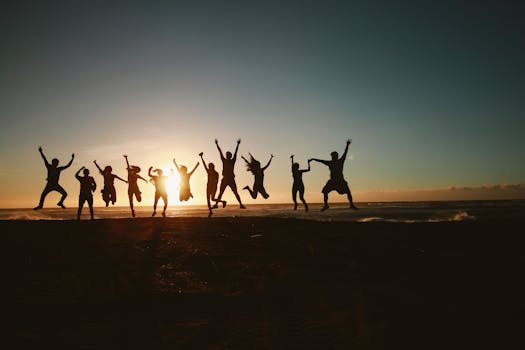The Power of Belonging: How Communities Shape Our World
Ever felt like you’re part of something bigger than yourself? That’s the magic of communities. They’re everywhere—online, offline, and even in your neighborhood. Let’s dive into what makes them tick and why they matter so much.
The Heartbeat of Communities
At their core, communities are all about connection. They bring together people who share common interests, goals, or challenges. Think about it—whether you’re into knitting, coding, or climate change, there’s a community out there for you.
Shared Passions
- The Ravelry Community is a perfect example. It’s an online haven for knitters and crocheters, where they share patterns, tips, and stories.
- For the tech-savvy, GitHub is more than just a code repository—it’s a community of developers collaborating on projects and learning from each other.
These shared passions fuel the energy that keeps communities thriving. They’re not just about hobbies, though. Communities can also form around causes and challenges.
The Strength in Numbers
Communities have a unique power to amplify individual efforts. When people come together, they can achieve so much more than they ever could alone. Take the Black Lives Matter movement, for instance. It started as a hashtag but grew into a global community fighting for racial justice.
The Power of Collective Action
- Communities can advocate for change, like the 350.org Community, which fights against climate change.
- They can also provide support and resources, such as the Chronic Pain Support Groups that help individuals cope with their conditions.
This collective strength is what makes communities so powerful. They turn individual voices into a chorus that demands to be heard.
The Role of Leaders and Members
Every community needs leaders—those who initiate, organize, and guide. But every member also plays a crucial role. It’s the collective effort that keeps the community alive and kicking.
The Spark of Leadership
- Leaders often start communities based on their passions or needs, like Brené Brown, who created a community around vulnerability and courage.
- They set the vision and values, but it’s the members who bring it to life through participation and engagement.
Think of it like a garden. The leader plants the seeds, but every member waters and tends to the growth.
The Digital Age of Communities
The internet has revolutionized how communities form and function. Now, you can connect with like-minded individuals from across the globe in an instant.
The Rise of Online Communities
- Platforms like Reddit, Facebook Groups, and Discord Servers have become hubs for countless communities.
- They offer spaces for discussion, collaboration, and support, breaking down geographical barriers.
But remember, digital communities need nurturing too. Moderators play a key role in keeping the space safe and engaging.
The Future of Communities
As we look ahead, communities will continue to evolve. They’ll adapt to new technologies, address emerging challenges, and find innovative ways to connect.
The Next Wave of Connection
- Virtual reality could create even more immersive community experiences. Imagine attending a meetup in a virtual space designed just for your group!
- AI and machine learning might help communities personalize support and resources, making them even more effective.
I’m so excited about, the possibilities are endless. But one thing’s for sure—communities will always be about people coming together to make a difference.
Final Thoughts
So, whehter you’re part of a small book club or a global movement, remember the power of belonging. Communities shape our world in incredible ways. They give us purpose, support, and a sense of home.
Go out there and find your tribe. Start that group you’ve been dreaming of. The world is waiting for your community to make its mark.
